15 Psychological Movies With the Same Chilling Edge as American Psycho
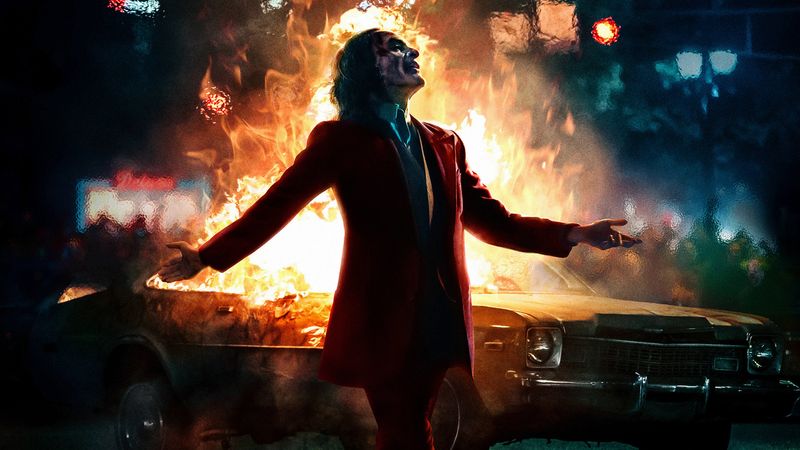
American Psycho shocked audiences with its dark exploration of a Wall Street banker’s twisted double life. The film’s unique blend of satire, horror, and psychological depth created a viewing experience that lingers long after the credits roll. If you found yourself captivated by Patrick Bateman’s disturbing world, these 15 films offer similarly unsettling journeys into the darker corners of the human mind.
1. Fight Club (1999)
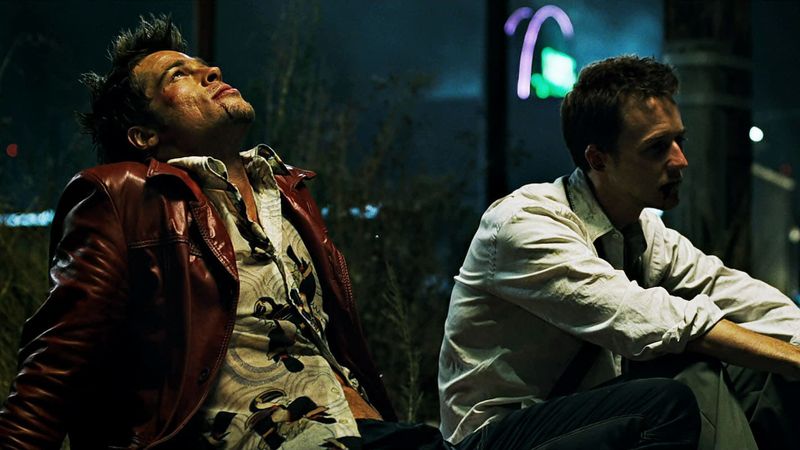
An insomniac office worker meets a charismatic soap salesman who changes his worldview forever. Together they form an underground fighting club that evolves into something far more sinister.
Director David Fincher masterfully captures the late ’90s disillusionment with consumer culture while exploring themes of masculinity in crisis. The film’s shocking twist forces viewers to question everything they’ve witnessed.
Much like American Psycho, Fight Club uses dark humor and stylized violence to deliver sharp social commentary, creating a cult phenomenon that continues to resonate with audiences decades later.
2. The Talented Mr. Ripley (1999)
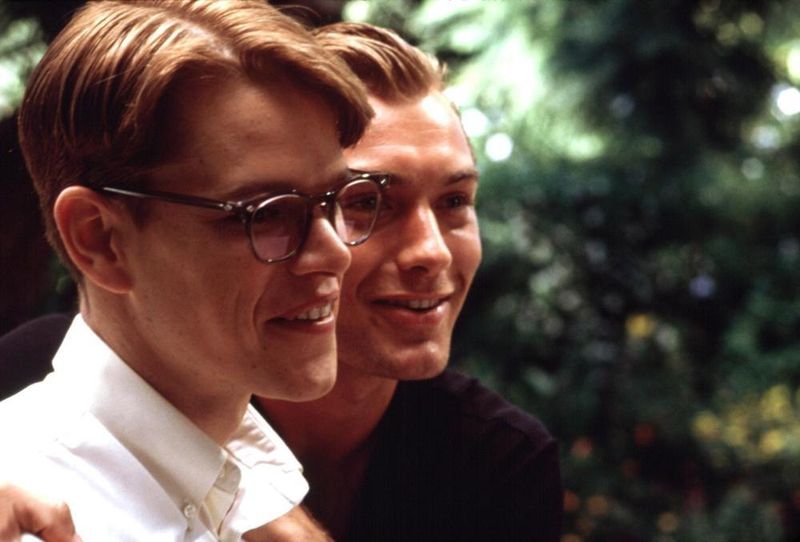
Sun-drenched Italian coastlines provide a deceptively beautiful backdrop for this tale of deadly obsession. Matt Damon portrays Tom Ripley, a man who becomes fixated on Dickie Greenleaf’s privileged lifestyle to disturbing extremes.
The film excels in its gradual transformation of Ripley from awkward outsider to calculating killer. His psychological deterioration unfolds with the precision of a Greek tragedy.
The movie shares American Psycho’s fascination with social masks and the lengths some will go to maintain appearances, though Ripley’s desperate yearning for acceptance contrasts with Bateman’s cold detachment.
3. Nocturnal Animals (2016)
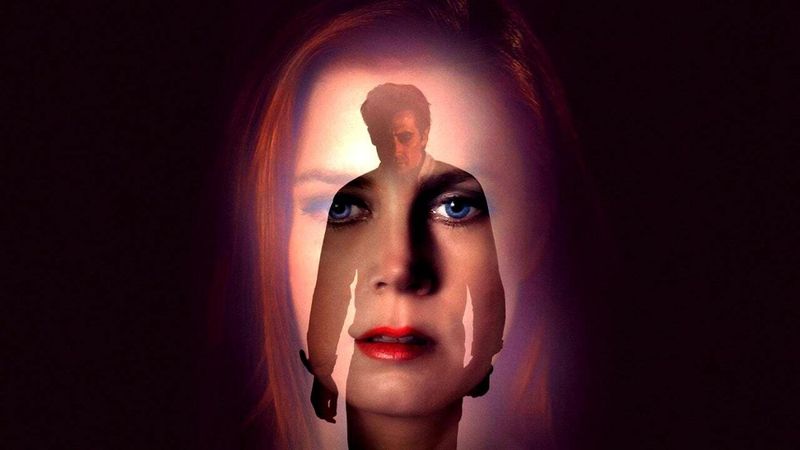
Fashion designer Tom Ford crafts a visually stunning narrative-within-a-narrative that haunts long after viewing. Amy Adams plays an art gallery owner who receives a manuscript from her ex-husband – a violent revenge tale she interprets as symbolic revenge for their failed relationship.
The film weaves between reality and fiction, creating a tapestry of regret, cruelty, and retribution. Its striking visual contrasts mirror the emotional extremes experienced by its characters.
Like American Psycho, the film explores the hollow nature of wealth and success while examining how past choices can manifest as psychological torture.
4. Extremely Wicked, Shockingly Evil and Vile (2019)
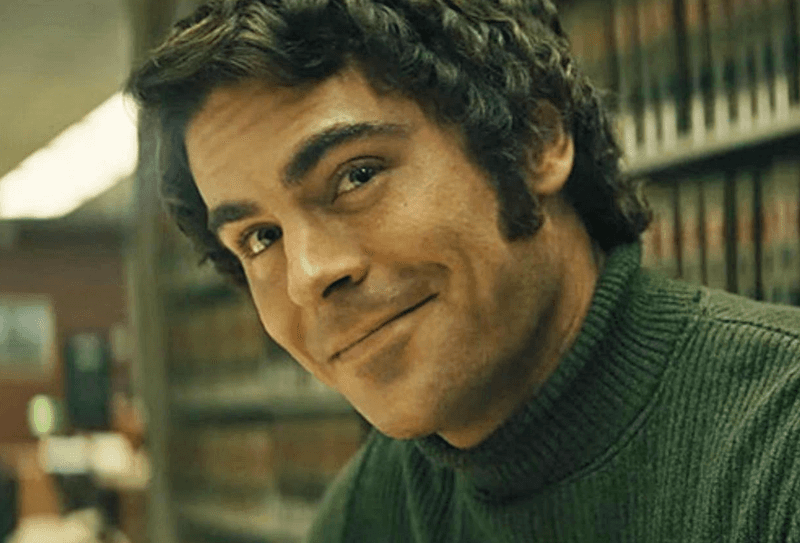
Zac Efron’s performance as Ted Bundy revolutionized how serial killers are portrayed on screen. Rather than focusing on gruesome murders, the film examines how Bundy’s charisma and manipulation allowed him to hide in plain sight.
Told largely from the perspective of Bundy’s girlfriend, the narrative mirrors her gradual realization of the monster behind the charming facade. The film’s power lies in its restraint, allowing viewers to understand how so many were deceived.
Similar to American Psycho, the movie explores the terrifying disconnect between public persona and private monstrosity, though based on real events that make it all the more chilling.
5. Mr. Brooks (2007)
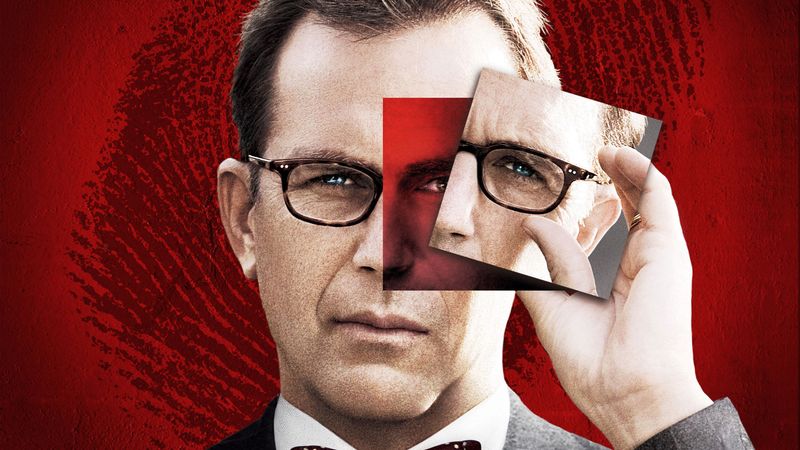
Kevin Costner sheds his wholesome image to play Earl Brooks, a successful businessman with a murderous alter ego named Marshall (William Hurt). Their internal dialogues create a fascinating dynamic as Brooks attempts to control his homicidal urges.
The film takes unexpected turns when a witness blackmails Brooks into allowing him to participate in future killings. Meanwhile, a determined detective closes in, creating a multi-layered game of cat and mouse.
The movie shares American Psycho’s theme of dual identities, though Brooks’ self-awareness and struggle against his darker nature adds a compelling moral dimension absent in Patrick Bateman’s remorseless spree.
6. Secret Window (2004)
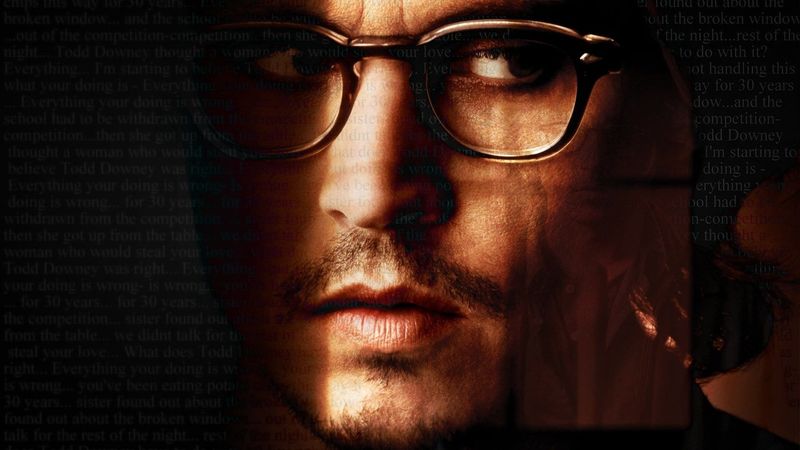
Johnny Depp stars as Mort Rainey, a writer whose isolation at a lakeside cabin becomes increasingly nightmarish when a stranger accuses him of plagiarism. Based on Stephen King’s novella, the film creates mounting dread as Rainey’s grip on reality deteriorates.
Mysterious events and threatening encounters blur the line between external threat and internal breakdown. The cabin setting becomes a psychological pressure cooker, intensifying Rainey’s paranoia.
The film explores themes of creative identity and mental fragmentation that parallel American Psycho’s examination of fractured selfhood, culminating in a twist that forces viewers to reconsider everything they’ve witnessed.
7. Saltburn (2023)
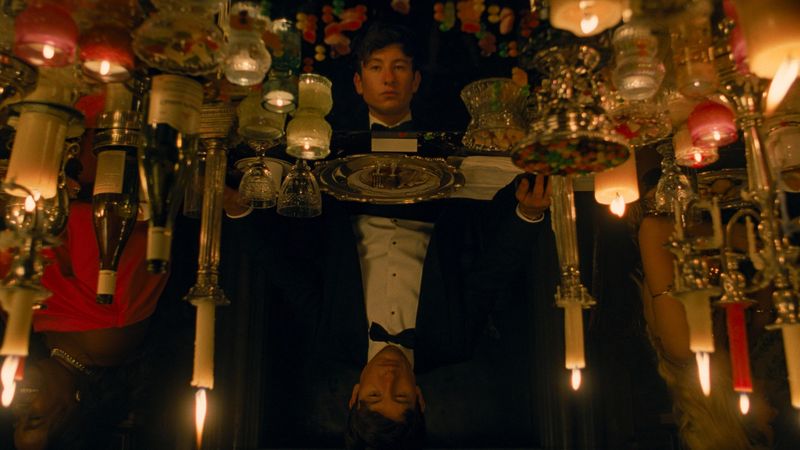
Class envy takes a disturbing turn in this stylish psychological thriller about a scholarship student who becomes obsessed with his wealthy classmate’s privileged existence.
The grand Saltburn estate becomes both paradise and prison as the protagonist insinuates himself into the family’s world. Director Emerald Fennell crafts scenes of decadence and desire that mask darker motives.
Each luxurious setting reveals new layers of manipulation and psychological warfare. Like American Psycho, Saltburn examines how wealth distorts relationships and morality, though its protagonist approaches from outside the privilege he covets rather than being numbed by it from within.
8. Shutter Island (2010)
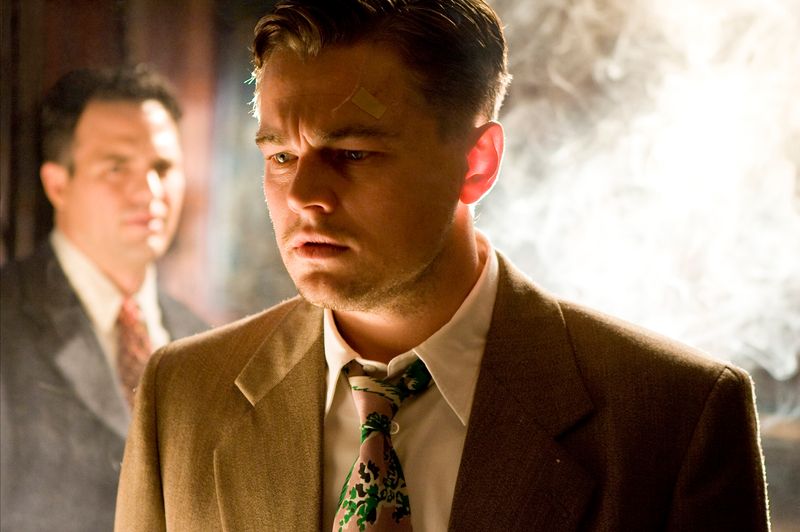
Martin Scorsese’s psychological labyrinth follows U.S. Marshal Teddy Daniels (Leonardo DiCaprio) investigating a disappearance at Ashecliffe Hospital for the criminally insane. Set in 1954, the film’s period details and isolated island setting create immediate unease.
Strange encounters with patients and staff, coupled with Teddy’s migraine-induced hallucinations, create an atmosphere of mounting paranoia. The distinction between investigator and inmate grows increasingly blurred as the story progresses.
The film shares American Psycho’s unreliable narrator technique, though Shutter Island’s protagonist evokes sympathy rather than revulsion as his fragmented psyche struggles to protect him from unbearable truth.
9. Taxi Driver (1976)
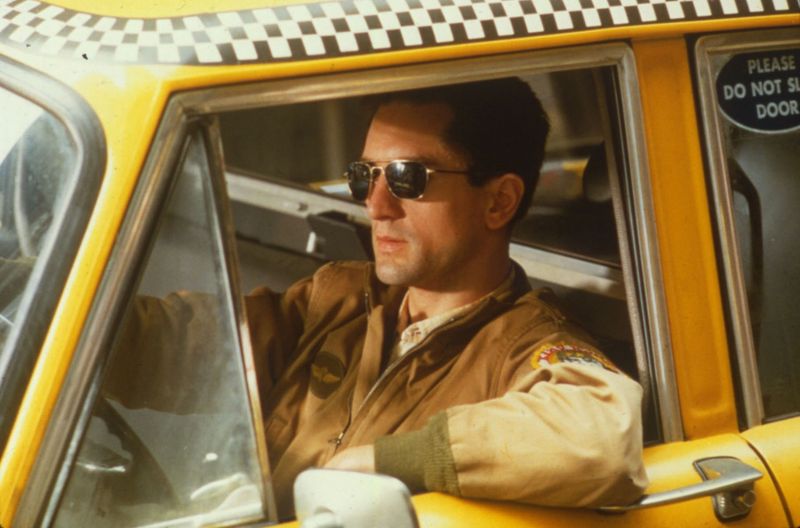
Robert De Niro’s portrayal of Travis Bickle remains one of cinema’s most unforgettable descents into madness. A Vietnam veteran driving taxis through New York’s seedy 1970s underbelly, Bickle’s isolation festers into violent vigilantism.
Scorsese’s gritty direction captures both the city’s decay and Bickle’s deteriorating mental state. The character’s famous mirror monologues reveal his disconnection from social norms and growing messiah complex.
Both Taxi Driver and American Psycho feature protagonists who channel societal alienation into violence, though Bickle’s twisted moral crusade contrasts with Bateman’s nihilistic indulgence in cruelty for its own sake.
10. Nightcrawler (2014)
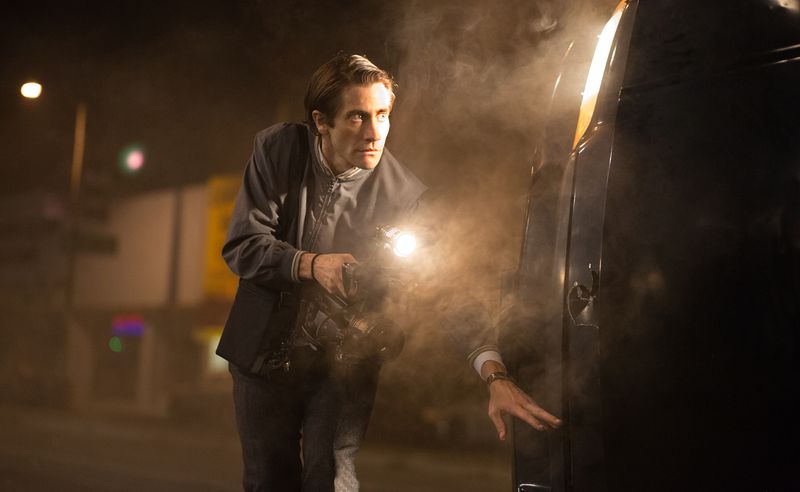
Jake Gyllenhaal transforms into Lou Bloom, a gaunt, wide-eyed stringer who films violent crime scenes to sell to local news stations. His entrepreneurial spirit takes a sinister turn as he begins manipulating crime scenes to create more dramatic footage.
The film offers a scathing critique of media sensationalism and unchecked ambition. Los Angeles appears as a nocturnal playground where tragedy becomes commodity.
Nightcrawler shares American Psycho’s exploration of capitalism’s dark side, though Bloom’s calculated rise contrasts with Bateman’s maintenance of status. Both protagonists reflect society’s values taken to their logical, horrifying extremes.
11. Joker (2019)
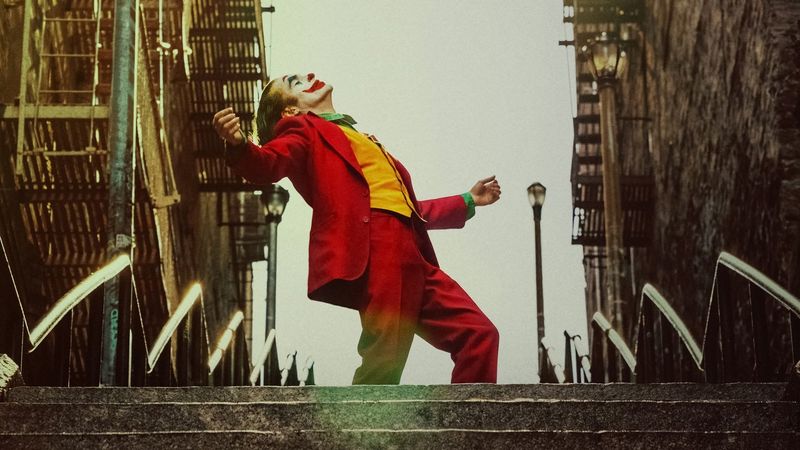
Joaquin Phoenix’s Oscar-winning performance as Arthur Fleck chronicles a failed comedian’s transformation into Gotham’s agent of chaos. Set against a backdrop of social inequality and governmental neglect, the film presents mental illness with uncomfortable intimacy.
Director Todd Phillips creates a grimy 1980s urban landscape where Arthur’s deterioration mirrors societal breakdown. His journal entries and fantasy sequences blur reality in ways that keep viewers perpetually off-balance.
Both Joker and American Psycho feature protagonists who commit violence partly as performance, though Arthur seeks recognition from a world that ignores him while Bateman’s crimes serve as private entertainment in his emotionally barren existence.
12. Trap (2024)
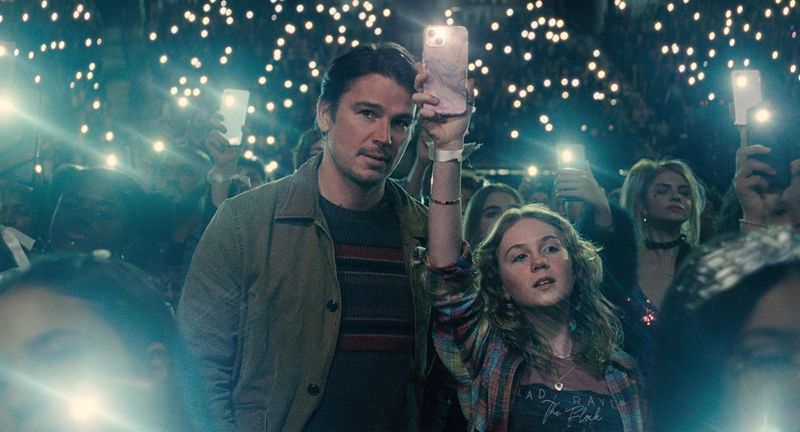
M. Night Shyamalan’s tense thriller follows a father and daughter attending a pop concert that becomes a nightmare when the father’s dark secret is exposed. The crowded venue transforms from celebration to claustrophobic trap as his past catches up with him.
The film masterfully plays with audience expectations, shifting perspectives on who represents threat and who needs protection. Ordinary family dynamics unravel to reveal horrifying truths beneath the surface.
Like American Psycho, Trap explores how seamlessly monsters can blend into everyday life, though its narrative offers more complex moral questions about redemption and justice that Bateman’s story deliberately avoids.
13. The Silence of the Lambs (1991)
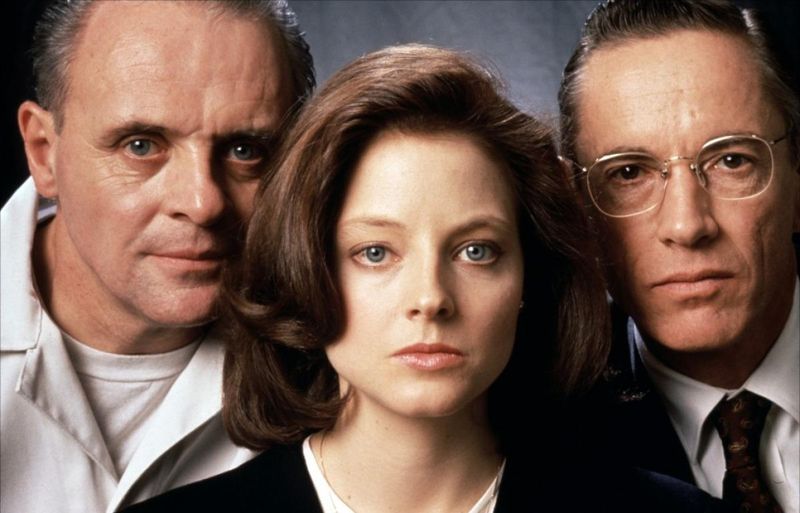
Jodie Foster’s FBI trainee Clarice Starling enters a psychological chess match with Anthony Hopkins’ brilliant psychiatrist-turned-cannibal Hannibal Lecter to catch another serial killer.
Their conversations form the film’s mesmerizing core, revealing as much about Starling as they do about the killers she pursues. Director Jonathan Demme creates unbearable tension through intimate close-ups and confined spaces. The film’s muted color palette and institutional settings heighten the clinical examination of human monstrosity.
Both The Silence of the Lambs and American Psycho feature killers with refined tastes and intellectual pretensions, though Lecter’s calculated manipulation contrasts with Bateman’s increasingly chaotic spree.
14. Maniac (1980)
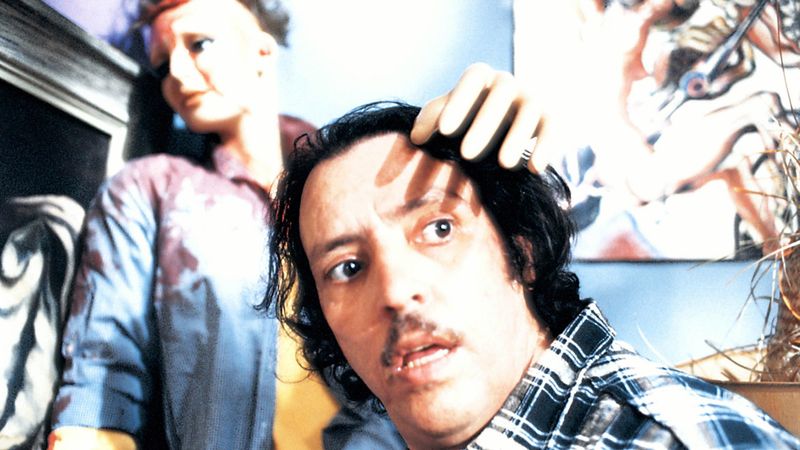
Elijah Wood stars in this remake shot almost entirely from the killer’s perspective, creating a uniquely disturbing viewing experience. Frank Zito, a mannequin restorer with severe childhood trauma, stalks and scalps women to adorn his mannequin collection.
The film’s innovative POV approach forces viewers into uncomfortable complicity with Frank’s actions. Mirrors and reflections provide rare glimpses of his face, emphasizing his fractured self-image.
Both Maniac and American Psycho present protagonists whose violence stems partly from objectification, though Frank’s compulsions arise from childhood wounds while Bateman’s emerge from spiritual emptiness beneath his perfect surface.
15. Pacific Heights (1990)
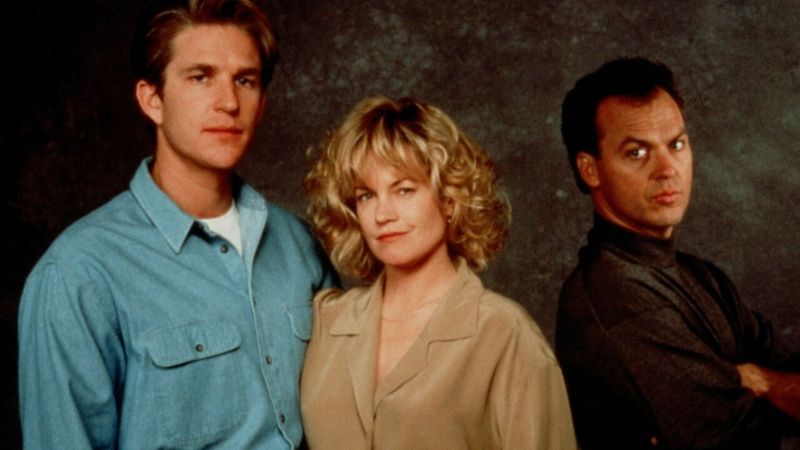
Matthew Modine and Melanie Griffith play young homeowners whose dream turns nightmarish when they rent to Michael Keaton’s manipulative tenant. What begins as minor annoyances escalates into psychological warfare as he systematically destroys their lives while exploiting tenant protection laws.
Director John Schlesinger creates mounting dread in ordinary domestic settings. The Victorian home that represents the couple’s aspirations becomes a battleground of territorial invasion.
Like American Psycho, Pacific Heights explores how easily predators can operate within society’s rules, though its antagonist uses legal loopholes rather than social privilege as camouflage for his methodical destruction of others.

Comments
Loading…